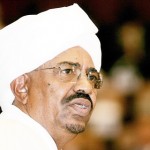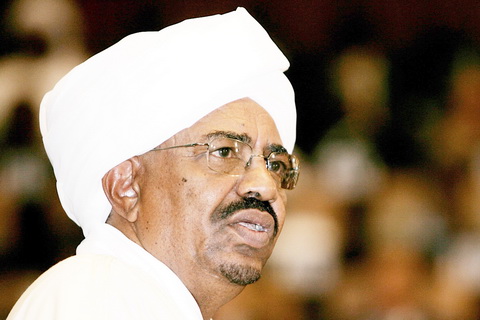
In a speech delivered to Islamist Sufi leaders in Khartoum on Saturday, Reuters quoted Sudan’s president Omar Al-Bashir saying that the new constitution, drafted after the secession of South Sudan, is to be “a hundred percent Islamic.”
The statement comes in the midst of a rising wave of anti-regime protests. The Sudanese president expressed hopes that the country’s new constitution will be a model for neighbouring countries currently undergoing an Islamist transition.
“The statement is all but the regime’s last attempt to play with the Islamist carrot” Amr Magdi, Director of the research unit in the Arabic Network for Human Rights Information (ANHRI), told the Daily News Egypt, commenting on Al-Bashir’s latest statement.
“They believe that such statement would get the Islamist opposition groups on their side or overall calm the protesting voices.” Magdi added. “Yet, the Sudanese people are not affected by such statements anymore. The uprising is against the entire regime of Al-Bashir, not just the junta.”
The Sudanese uprising, ongoing for almost a month now, was sparked on 16 June by demonstrations protesting austerity measures. The last wave of demonstrations, carried out on Friday at the Wad Nubawi mosque in Omdurman, along with other places, saw the arrest of several prominent opposition figures including activists, students, and politicians.
Kamal Omar, head of the politburo of the Popular Congress Party, was arrested in his home following the protests on Saturday. The party is led by Hassan Al-Turabi, ex-secretary general of the ruling National Congress Party, who had later turned against Al-Bashir’s regime.
Activist groups in Sudan estimate that 2,000 people have been detained since the beginning of the protests, according to an AFP report. “Arrests are wholesale,” was how Magdi described the situation. “They take place following every single protest; where some of those arrested get flogged, others get moved to unknown destinations, and others are later released.” Magdi added that though it is constantly communicating with activist groups in Sudan, ANHRI finds difficulty in getting a clear figure for those detained.
In a separate speech at a public rally in the area of Wad Al-Fadni, Al-Bashir described those carrying out the protests as “some youth and street children”. “The most-feared aspect about the Sudanese uprising, from ANHRI’s perspective, lies within the media-blackout which is currently being exercised.” Magdi told the Daily News Egypt. “The continuous targeting of journalists and bloggers; such as Egyptian journalists Salma Al-Wardani and Shaimaa Adel and Sudanese blogger Maha Al-Senusi is an obvious tactic used to implement the blackout.”
Magdi also referred to the Arabic media not properly covering the Sudanese uprising or giving it due attention, in comparison to their coverage of other political uprisings taking place in the region. He brushed off the behaviour as a “difference in priorities based on the media’s hosting-country’s foreign policies.”
The austerity measures imposed recently which caused the current uprising, were a response to an increase in inflation.
Since the secession of South Sudan, North Sudan has been losing millions of dollars. Seventy-five percent of the Sudanese oil is located in the South. Even though almost all the oil pipes which export oil to foreign countries are situated in northern Sudan, the Arab country is still far behind when it comes to oil production, following Juba’s independence in July 2011.

